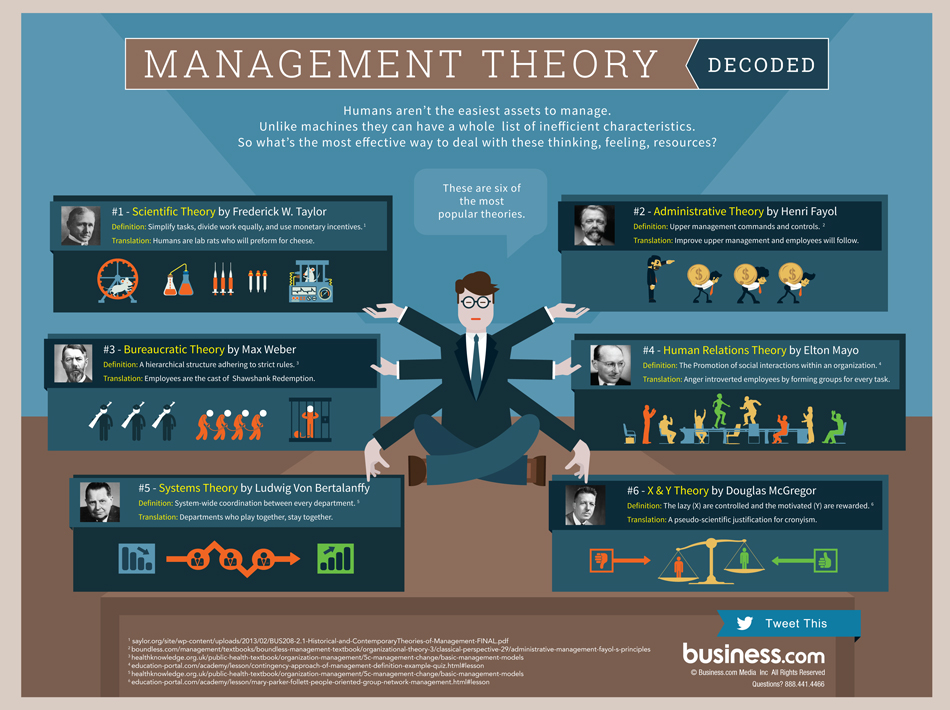MENU
Starting a Business
- Best Small Business Loans
- Best Business Internet Service
- Best Online Payroll Service
- Best Business Phone Systems
Our Top Picks
- OnPay Payroll Review
- ADP Payroll Review
- Ooma Office Review
- RingCentral Review
Our In-Depth Reviews
Finance
- Best Accounting Software
- Best Merchant Services Providers
- Best Credit Card Processors
- Best Mobile Credit Card Processors
Our Top Picks
- Clover Review
- Merchant One Review
- QuickBooks Online Review
- Xero Accounting Review
Our In-Depth Reviews
- Accounting
- Finances
- Financial Solutions
- Funding
Explore More
Human Resources
- Best Human Resources Outsourcing Services
- Best Time and Attendance Software
- Best PEO Services
- Best Business Employee Retirement Plans
Our Top Picks
- Bambee Review
- Rippling HR Software Review
- TriNet Review
- Gusto Payroll Review
Our In-Depth Reviews
- Employees
- HR Solutions
- Hiring
- Managing
Explore More
Marketing and Sales
- Best Text Message Marketing Services
- Best CRM Software
- Best Email Marketing Services
- Best Website Builders
Our Top Picks
- Textedly Review
- Salesforce Review
- EZ Texting Review
- Textline Review
Our In-Depth Reviews
Technology
- Best GPS Fleet Management Software
- Best POS Systems
- Best Employee Monitoring Software
- Best Document Management Software
Our Top Picks
- Verizon Connect Fleet GPS Review
- Zoom Review
- Samsara Review
- Zoho CRM Review
Our In-Depth Reviews
Business Basics
- 4 Simple Steps to Valuing Your Small Business
- How to Write a Business Growth Plan
- 12 Business Skills You Need to Master
- How to Start a One-Person Business
Our Top Picks
Table of Contents
More goes into managing a team than meets the eye. To successfully lead a business, you should appeal to employees through numerous methods, including emotional and financial incentives. Employees tend to appreciate authentic managers who value them as people and professionals, whereas some of the earlier management theories didn’t value kindness or work-life balance.
Management is a constantly evolving field, and it’s both an art and a science. Most modern-day workplaces seamlessly integrate multiple management theories to ensure optimal employee output. While many of these systems are hybrids of multiple theories and strategies, there are a few famous strategies that managers have studied for decades.
What are management theories?
“Proper management” is a tricky term. Not every employee, and certainly not every group of employees within a company, responds the same way to various managerial tactics. The best managers are able to use a variety of styles when dealing with different people, while still applying one or two major guiding philosophies for leading a team. This can make modern management challenging.
However, managers can use management theories to help guide them through the process. Management theories, or collections of ideas that provide the framework for effective management strategy, are implemented in modern workplaces to motivate and bring out the best in employees.
Theorists have long speculated on what type of management is best for humans in the professional setting. Management theories, at their core, encompass a set of general principles that guide managers in overseeing a business. These theories revolve around supervision, organization and group performance — serving as a tool employees can use to align with business goals and implement the strategies to achieve them.
Early management theories were rooted in a system of rewards and punishments, where success received recognition and failure led to reprimands. These theories have been widely adopted by business leaders to manage their employees’ performances.
Here are the three most commonly used theories in business management today:
- Classical Management Theory is based on an employee’s physical and economic needs. It advocates for labor specialization, centralized leadership and maximized profit.
- Behavioral Management Theory, or the human relations movement, emphasizes understanding human behavior at work for enhanced productivity. It focuses on motivational factors like conflict resolution, expectations and group dynamics.
- Modern Management Theory uses techniques in math, such as the Quantitative Approach, System Approach and Contingency Approach, to analyze manager-employee relationships.
It’s common for managers to use more than one theory to achieve productivity or organizational goals. Managers should understand these different theories and know how to implement them, while also realizing past management theories don’t always tell the whole picture when it comes to effective leadership. [Read how to turn change management into personal development]

You can empower your employees through human relations theory by fostering relationships, creating collaboration and giving them the power to make decisions.
What are popular management theories?
Here’s more on the six most popular management theories discussed above in the infographic.
Scientific theory by Frederick W. Taylor
This one is a classic. Frederick W. Taylor’s scientific theory poses some fascinating questions by diving deeper into the efficiency of work processes. Taylor was an engineer, and he experimented to determine the most efficient and effective ways to get tasks done.
On the surface, this theory held great value. The scientific theory aimed to make work more efficient. Unfortunately, it had some major flaws as well.
Taylor created four principles of his scientific management theory. First, each task should be studied to determine the most efficient way to do the task. This disrupts traditional work processes. Second, workers should be matched to jobs that align with both their abilities and motivation. Third, workers should be monitored closely to ensure they only follow best working practices. Fourth, managers should spend time training employees and planning for future needs.
There are a few positives of this theory. Maximizing efficiency is a great idea. Assigning workers to jobs based on their abilities and motivation levels can also have beneficial effects in some areas.
Major flaws in the theory include the de-emphasis on teamwork. An incredible focus on specific and individualized tasks eliminates creative problem-solving and makes teamwork obsolete. The scientific management theory also encourages micromanagement that could drive today’s employees up the wall.
Administrative theory by Henri Fayol
Fayol developed six functions of management that work in conjunction with 14 management principles. This theory has a few core ideas that live on today, but you’ll rarely find a workplace swearing by Henri Fayol’s 14 principles.
The six functions are as follows:
- Forecasting
- Planning
- Organizing
- Commanding
- Coordinating
- Controlling
Some people combine forecasting and planning into one function, simplifying the theory down to five functions. The functions are straightforward: Fayol said managers need to plan for the future, organize necessary resources, direct employees, work collaboratively, and control employees to make sure everyone follows necessary commands.
The 14 principles are outlined below.
- Division of work: Employees should have complementary skill sets that allow them to specialize in certain areas.
- Authority: Management needs authority to give employees orders. This authority must be agreed upon.
- Discipline: This gets to the idea of employees listening to commands and being disciplined in getting work done. If a manager sets a deadline, an employee should have the discipline to meet it.
- Unity of command: Employees answer to their managers, and there aren’t a bunch of unnecessary people involved with the process. Going over your manager’s head would be an example of breaking this principle.
- Unity of direction: Teams should be striving for common goals.
- Subordination of individual interests: The team comes before the individual.
- Remuneration: There are monetary and nonmonetary versions of remuneration. Both are needed to motivate employees.
- Centralization: There should be a balance between decision-making power. For example, a company’s board of directors should have a say, but the mid-level managers shouldn’t be overpowered.
- Scalar chain: Each company should have clear hierarchical structures.
- Order: This refers mostly to cleanliness and organization within a workplace. An office shouldn’t be disgustingly messy.
- Equity: Employees should be treated well.
- Stability of tenure of personnel: This principle suggests that businesses should try to limit turnover and keep employees around as they accumulate knowledge and improve.
- Initiative: Employees should share ideas and be rewarded for innovative thinking and taking on new tasks.
- Esprit de corps: Employee morale matters. This principle suggests that managers should work to keep employees engaged and interested.
Employees become 14 percent more productive when they are enthusiastic about their roles, according to Gallup.
There are quality aspects of this theory. Remembering all 14 principles can be challenging and makes more sense for a test on management than an entrepreneur running their business. However, the principles apply in today’s workforce. Concepts like equity and remuneration are important aspects of management. Other principles, like scalar chain, aren’t always necessary. Some businesses find success without clear hierarchies, and the organizational setup depends largely on the business and the size of the company.
Bureaucratic theory by Max Weber
Max Weber created the bureaucratic theory, which says an organization will be most efficient if it uses a bureaucratic structure. Weber’s ideal business uses standard rules and procedures to organize itself. He believed this strategy was especially effective for large operations.
The theory includes the five principles described below.
- Task specialization: Weber stressed the importance of each employee fulfilling a specific role within a company.
- Hierarchy: Weber wanted each company to have a clear hierarchy within the organization.
- Formal selection: When selecting leaders, businesses consider a person’s qualifications. They should be appointed to certain roles based on those qualifications, which means they won’t be elected by vote.
- Rules and requirements: These ensure everyone knows what’s expected of them. Weber wanted business to have uniform standards, and rules are essential to achieving this goal.
- Impersonality: The rules and regulations make a business structure impersonal. Promotions aren’t about emotions or personal ties, but rather performance.
Elements of this theory make sense. Some rules and standards are certainly necessary within every organization. On the other hand, it’s not easy to implement many of these ideas. The theory and practice don’t line up. It’s almost impossible to keep emotions out of business decisions, and sometimes emotions are needed.
If your company offers three months of parental leave, but a new mother has complications with her baby near the end of those three months, some managers might offer another few weeks at home to care for the child. With Weber’s mindset, a manager would coldly ask her to return to work after three months like everyone else. Emotions shouldn’t always dictate decisions, but the best managers can relate to their employees on a personal level.
Human relations theory by Elton Mayo
In stark contrast to Weber’s bureaucratic theory of management, Elton Mayo’s human relations theory emphasizes relationships. Mayo believed that productivity increases when people feel like they are part of a team and feel valued by their co-workers.
The human relations theory emphasizes praise and teamwork as motivational factors. This is basically the opposite of the bureaucratic theory. While emphasizing personal factors is a good idea, there can be too much of a good thing. Valuing relationships above all else can lead to tricky situations like office romances and promotions based on personality rather than job accomplishments.
A happy medium between bureaucratic theory and human relations theory might be a better goal for managers. Some rules are necessary, but you shouldn’t dehumanize employees either.
Systems theory by Ludwig von Bertalanffy
The systems theory of management believes that each business is a system, much like a living organism, with numerous activities going on to keep the operation rolling along. A business isn’t just its CEO, and a person isn’t just a brain. A person needs their other organs and other key features to live. A business needs more than just a CEO to survive.
While the organism idea is a little extreme — most business operations aren’t life-or-death endeavors — the analogy applies. The systems theory says everything needs to work together for a business to succeed.
There is some truth to this theory, as businesses can benefit from ensuring different departments are on the same page. If a business’s sales team is struggling, it can hurt the whole operation. On the other hand, a sales team struggling doesn’t necessarily hurt the accounting department. Many businesses have separate entities within their organization, so this theory isn’t completely accurate.
X & Y theory by Douglas McGregor
The X & Y theory of management assumes there are two different types of workers. Theory X workers lack ambition and drive and need to be ordered around by bosses to do anything. Theory Y workers, on the other hand, enjoy work and strive for self-fulfillment.
Both views of employees are extreme, as most workers fall somewhere between X and Y. Employees don’t need to be ordered to do every task, but most have some need for discipline and rules. Many employees do enjoy work, but it doesn’t always come naturally and requires some encouragement at times. There should be a middle ground for implementing this theory.
“This theory is largely considered to be obsolete today, as few managers begin from a starting position of being highly polar or binary in terms of their management style being just one of two options at opposing ends of a spectrum,” said Polly Kay, copywriter and marketing consultant.
Management theories are always evolving — past theories touch on some vital aspects but ignore others. Good managers incorporate different theory elements to effectively manage their teams.
What management theories teach us about business
Management theories popularized in the early to mid-1900s weren’t perfect. That’s unsurprising, as different theories of management have gained steam in recent decades. Popular management theories from the past often touch on important aspects of management but ignore other crucial points. When studying or implementing these theories, it’s important to know the pros and cons of each and how those might apply to your business, even if you aren’t directly using a certain style.
“In the real working world, few managers and business leaders consciously use management theories as rigid frameworks to adhere to or as long-term guiding principles,” said Kay. “That said, many do attempt to consciously incorporate individual elements of their preferred management theories into their broader management style.”
When implementing management theories, you should understand that no two employees or businesses are the same. A certain style may offend one employee, while another employee may respond beautifully. Management is both an art and a science, and being an effective manager requires more than an understanding of certain theories. How they put those theories into practice is what separates good managers from bad ones.
Lauren Kubiak contributed to this article. Source interviews were conducted for a previous version of this article.










